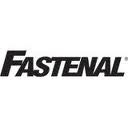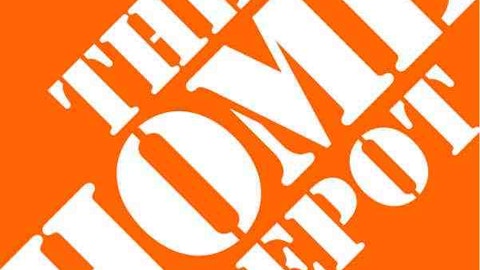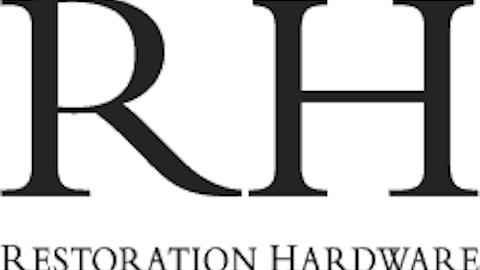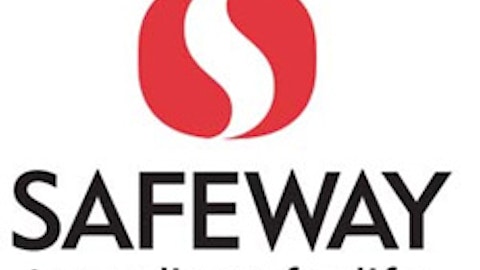Do you think nuts, bolts and screws are boring? You won’t after you see how much money Fastenal Company (NASDAQ:FAST) makes selling them to manufacturers, plumbers, electricians and contractors.
In fact, if you think factories are going to make more widgets and builders are going to build more homes, it might be the perfect time for you to buy some shares.
A straight forward business with easy-to-understand products
There’s no fancy, hard-to-understand business model behind Fastenal Company (NASDAQ:FAST)’s success.
Instead, the retailer’s profit depends heavily on whether the economy is growing or shrinking. The stronger the economy, the more widgets manufacturers produce, the more buildings contractors fix, and the more nuts and bolts Fastenal sells.
But, just because Fastenal Company (NASDAQ:FAST) sells nuts and bolts doesn’t mean you should confuse Fastenal with home improvement chains The Home Depot, Inc. (NYSE:HD) and Lowe’s Companies, Inc. (NYSE:LOW).
Home buyer and home owner confidence has improved since the recession officially ended, supporting a wave of do-it-yourself growth for The Home Depot, Inc. (NYSE:HD). The company notched its 8th consecutive quarter of year-over-year sales growth last quarter.
At Lowe’s, sales growth has been more elusive. The company saw its sales dip 0.49% last quarter from the prior year.
However, unlike Home Depot and Lowe’s Companies, Inc. (NYSE:LOW), Fastenal Company (NASDAQ:FAST) sells directly to manufacturers and do-it-for-me contractors rather than do-it-yourself weekend warriors. The difference is subtle, yet important.
As a result, the majority of Fastenal Company (NASDAQ:FAST)’s post-recession growth has come from manufacturing, not your neighbor’s handiwork. Those business customers helped Fastenal post year-over-year sales growth in 13 consecutive quarters, trumping the big box chains.
Fastenal’s earnings story
All those nuts and bolts have added up to some impressive earnings growth for Fastenal too. Since 2006, those earnings have moved higher in every year except the recession depressed 2009.
Fastenal has also outpaced Home Depot and Lowe’s in ability to translate sales growth to earnings growth. Since early 2010, Fastenal’s quarterly year-over-year earnings per share growth has been a median 32%, far better than Home Depot and Lowe’s 22.06% and 13.73% growth, respectively.
With the economy trudging higher, the average Wall Street analyst expects Fastenal’s profit to grow 12% this year and another 17% in 2014.
Why are Fastenal’s earnings growing?
In 2007, Fastenal instituted its “Pathway to Profit” strategy. The strategy aimed to boost sales in existing stores by hiring more sales people and boost earnings by slowing capital spending on new stores.
The decision was timely. Fixed expenses tied to stores and payroll cause headaches when recession hits and sales and earnings fall. The “Pathway to Profit” strategy gave Fastenal a lead in making tough decisions tied to repositioning in markets most affected by the downturn.
That’s not to say Fastenal escaped the last recession unscathed. However, it did weather the storm better than others as lower expenses helped drop more earnings to Fastenal’s bottom line.
While its operating margin hasn’t reached Fastenal’s 23% target yet, they have grown to 21.65% from just 17.7% in 2007.
Will Fastenal sales increase from here?
The “Pathway to Profit” plan also helped existing stores eke out more sales by hiring more sales people. Those extra feet on the ground kept core customers happy even as the economy shrank.
Those happy customers allowed the company’s sales to rebound nicely from their low of $1.93 billion in 2009 to a record $3.1 billion last year. At the same time, average store sales have grown from just $81,000 to $118,000.
Importantly, higher store sales are coming across an increasingly larger footprint.
Despite slowing new construction, Fastenal’s store count has still grown to 2,652 from 2,311 in 2008. Over time, Fastenal thinks the North American market can support 3,500 stores or more, with each conceivably generating $125,000 in annual sales.
Since Fastenal is only increasing new stores by 3% this year, future growth has to come from innovation too.
Sure, more sales people can help boost dollars per square foot. But, Fastenal’s industrial vending machine program may be increasingly important over the coming two years.
These machines dispense fasteners instead of candy bars and Fastenal has more than 21,000 of them installed at industrial sites, up from just 1,925 in 2010. This year, Fastenal hopes to ink deals for 30,000 machines.
As these machines are increasingly deployed, Fastenal should be able to improve inventory management and boost revenue.
The final take
The biggest risk facing Fastenal remains the economy. If home sales stutter and industrial production falls, fastener sales will drop too. So, keep a close eye on those two pieces of data.
For now, net sales continue to improve.
In the first four months of this year, they’re up 4.8% from a year ago. The gains are mostly thanks to strength from manufacturing customers, which account for 50% of sales. But, contractor sales are starting to improve, edging up 0.4% in April.
The warmer weather should help support those contractor sales given summer is typically the strongest for improvement projects.
That seasonality is reflected in share prices, which have gained in 7 of the past 10 years from now through August, according to the Seasonal Investor database.
While you can’t be certain seasonality will repeat again this year, the combination of sales and margin growth tied to manufacturing and construction markets suggest now may be a good time for Fools to consider buying shares.
Todd Campbell has no position in any stocks mentioned. The Motley Fool recommends Coca-Cola.
The article Nuts and Bolts Investing With Fastenal originally appeared on Fool.com and is written by Todd Campbell.
Todd is a member of The Motley Fool Blog Network — entries represent the personal opinion of the blogger and are not formally edited.
Copyright © 1995 – 2013 The Motley Fool, LLC. All rights reserved. The Motley Fool has a disclosure policy.









